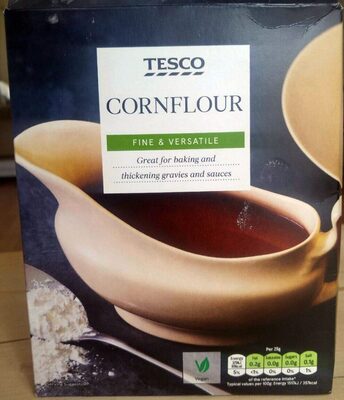
Barcode: 5057753440176
Cornflour
HALAL
📝 Reason: Cornflour is derived from corn, a plant-based ingredient, which is generally considered Halal. There are no Haram ingredients or E-codes listed in the product information. The product is also tagged as vegetarian and vegan, which further supports its Halal status.
🏷️ Category: Plant Based Foods And Beverages, Plant Based Foods, Cereals And Potatoes, Cereals And Their Products, Flours, Cereal Flours, Starches, Cereal Starches, Corn Starch, Cornmeal
📄 Certificates: Vegetarian, Vegan, Vegetarisch, Vegan
Ingredients:
Details
Cornflour: A Comprehensive Guide
Cornflour is a staple ingredient in many kitchens around the world. Made from finely ground corn, it is commonly used in recipes for thickening sauces, baking, and cooking. But if you are conscious about dietary laws, you might be wondering: Is Cornflour Halal? In this article, we will explore everything you need to know about the Halal status of Cornflour, its ingredients, and more.
Cornflour’s Halal Status
The short answer is yes—Cornflour is considered Halal. Being derived from corn, a plant-based ingredient, it does not contain any Haram components. According to the information available, there are no additives or E-codes that indicate the presence of non-Halal substances in Cornflour. In fact, Cornflour is also labeled as vegetarian and vegan, further solidifying its Halal credentials.
Ingredient Breakdown: Cornflour
Let’s take a deeper look at the sole ingredient found in Cornflour:
- Cornflour: This ingredient is the fine powder made from the endosperm of corn kernels. Its usage in cooking primarily revolves around its ability to thicken mixtures and provide texture. The source of Cornflour is completely plant-based, making it suitable for those following a Halal diet.
E-Numbers and their Significance
When it comes to Halal certifications, many people look for E-numbers on ingredient labels. E-numbers are codes for substances that are approved for use in food within the European Union and are often associated with preservatives, colorants, and stabilizers. For Cornflour, there are no E-numbers applicable, as it contains only one ingredient: Cornflour itself. This is a strong indication that it is free from additives that could otherwise compromise its Halal integrity.
Why Choose Halal Products?
Choosing Halal products extends beyond religious beliefs—it is often associated with ethical and health considerations. Many consumers are now opting for Halal-certified foods for their perceived quality and safety standards. Cornflour’s Halal status allows it to be a versatile ingredient for everyone, from those observing dietary restrictions to those simply looking for high-quality food options.
Branding and Certification Context
Cornflour typically appears in various forms and brands, but for Halal certification, it’s essential to look for recognized certifications specifically stating that a product is Halal. In this case, our Cornflour is also labeled as vegetarian and vegan, indicating that it meets a broader spectrum of dietary needs. Being aimed at diverse consumer groups, Cornflour fits perfectly into categories like Plant-Based Foods and Beverages, Cereals and Potatoes, and Flours among others.
Concluding Thoughts
With its simple ingredient list, no E-numbers, and a plant-based source, Cornflour is a product you can enjoy without worrying about its Halal status. Whether you’re making a delicious sauce or experimenting with desserts, rest assured that Cornflour fits seamlessly into a Halal dietary lifestyle. If you’re ever in doubt about a product’s Halal status, looking up certifications and labels will guide you toward safe choices.
So next time you ask yourself, “Is Cornflour Halal?” you can confidently say, Yes!

